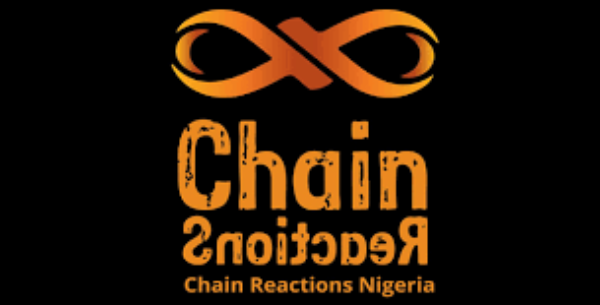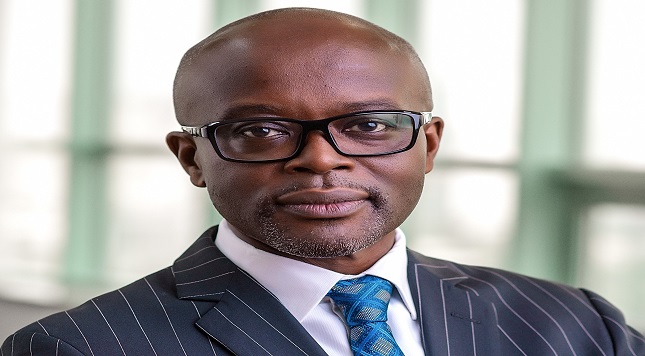General News
COVID-19: The imperative of Strategic Communications in Overcoming the Challenges of Coronavirus Pandemic in Nigeria

By Francis Nwosu
When the earliest Coronavirus (COVID-19) case was detected on November 17, 2019, in Hubei Province, Wuhan, China, little did the world know that it would be declared a global pandemic by the World Health Organisation (WHO).
This was after Chinese authorities had tried to cover it up by muzzling the country’s scientific community that had warned of the virus’ deadliness.
In Nigeria, hearts were in mouths as the Federal Ministry of Health announced Nigeria’s index case on February 27, 2020. He was an Italian that flew in from Milan for a business meeting. Since then, the number of confirmed Nigerian infections has risen to 442 as of April 16. There have been 152 recoveries and 13 deaths.
Like some citizens and residents in the West, several Nigerians were also sceptical about the disease. They dismissed it as a hoax, but events have proved otherwise. Sadly, the initial scepticism has proved to be a massive drawback to government’s effort to combat the virus early.
Of course, pandemics have precedence in human history. There was the Flu pandemic of 1889 to 1890 that killed 1 million people; Spanish Flu (1918-1920), and Asian Flu (1957-1958) that had about 500 million cases with one-fifth of those killed. The H1N1 Swine Flu pandemic recorded 1.4 billion cases and killed between 151,700 and 575,400 people.
Ironically, the trajectory of such pandemics and epidemics, including Ebola is that they have a similar path in Nigeria. The first case was in Lagos, then Ogun and Ibadan before it spread to other Nigerian communities and states.
Nonetheless, the COVID-19 pandemic has exposed our tardy response to emergencies. It has similarly exposed our grossly inadequate health, humanitarian, security, educational, labour, governance and fiscal arrangements. These gaps require that more proactive and urgent actions need to be taken to curtail the spread of COVID-19.
Apart from scaling up the medical intervention, strategic communications and reputation management experts are needed at this point in time to reassure citizens and get their backing for government efforts to defeat the disease.
People need to be well informed of the various measures to break the virus’ transmission cycle, including physical/social distancing, restriction of movement, and the necessity of maintaining thorough personal hygiene.
They need to be educated about why they need to comply with these directives, and understand the weightier benefit of staying at home instead of hopping about ‘for their daily livelihood.’
Strategic public relations actions leveraging community influencers and local dialects should be deployed by state and local governments for community engagement with the people at the grassroots.
Using relatable cultural communication at a time like this will foster people’s awareness of the pandemic and the systems authorities are putting in place to mitigate further spread.
Despite government efforts to curb COVID-19, as well as donations of cash, relief materials and volunteer service from well-meaning Nigerians and institutions, the challenges of stopping this disease are enormous.
Thus far, these efforts seem like a drop in the ocean. And this is not to discredit these interventions but, anecdotal evidence nationwide show negligence and partisanship in the distribution of relief materials. Trust gap is also widening.
So, the onus, now, is on government to swiftly onboard relevant professional bodies to drive strategic communications, behavioural change and strong advocacy to deepen the current response to COVID-19 in a more seamless and coordinated manner.
Engagement of PR consultants will go a long way to drive tactful messaging content that will appeal to targets and help to manage their expectations. Experts in marketing communication and information management, more than ever, need to be drawn in to help up the ante.
They should become the advisory ombudsman amongst various interest groups and institutions to strengthen collaborations that will accelerate the efforts to defeat Coronavirus.
With effective communication and enlightenment, the public will become more enlightened about COVID-19. All the nonsensical myths that the virus cannot survive in a hot region or is a conspiracy of the West to use 5G technology to destroy the world will stop.
The deployment of well-articulated and strategic communications will ensure effective risk mitigation communication, control of misinformation and eradication of ignorance. It will also reveal the antics of mischief peddlers masking as community voices in their circle of influence.
The importance of strategic communications notably PR, cannot be exhausted in just one breathe. The time is now to drive an articulate messaging on relief efforts by government agencies. It will additionally ensure that people are knowledgeable about all the issues about management of the challenges posed by the virus.
As the whole world strengthens commitments to end Coronavirus so it does not ruin humankind, Nigeria cannot afford to be left behind with tardy communication and poor planning.
Nwosu is an Associate Analyst, Content and Creative, with Chain Reactions Nigeria.
General News
Conoil Bonanza Winners Emerge

Conoil Plc is spreading joy this Valentine season as the first group of winners in its Valentine Bonanza promotion have been announced and rewarded. Launched on February 14, the campaign continues to delight customers at participating retail outlets.

The initial raffle draw, conducted on February 21, saw fortunate customers receive ₦10,000 worth of free petrol each. The draw was carried out publicly, with media representatives present to ensure full transparency. With the promotion still ongoing, more customers have the opportunity to join in and potentially be among the next winners.
A Conoil Management spokesperson explained that the initiative is a way to show appreciation to loyal customers for their ongoing support. “Our customers have responded impressively to the bonanza, with strong participation recorded across our stations,” the spokesperson said.
The second and final phase of the promotion is now in motion. Customers who purchase at least 10 litres of petrol at any participating Conoil station remain eligible to win in the grand finale raffle.
The grand finale is set for February 28 at 12 noon. Motorists in Lagos and Ogun states are encouraged to visit Conoil outlets to collect their tickets and take part in the exciting conclusion of this Valentine celebration.
General News
PalmPay Couples Show How Love Is Funded Digitally

PalmPay users took to the #LoveWithPalmPay campaign to show how experiences are powered through seamless banking.

It’s the month of love and social media has been filled with couples showing affection with gifts. As digital payments become embedded in everyday life, the way relationships are planned, funded, and experienced is evolving.
Recent insights from SBM Intelligence 2025 ‘Love in the Air’ report show that despite economic pressures, most Nigerians still set aside dedicated budgets for Valentine’s Day, with the largest percentage planning to spend between N51,000 and N100,000, while less than 5% are willing to spend above N500,000.
This growing intentionality highlights the need for platforms that help people manage their money more effectively, offering features like free transfers and tools that make it easier to send, track, and preserve funds while still showing up for meaningful moments.
Through the #LoveWithPalmPay campaign, PalmPay set out to show how the platform is enabling users to plan, pay, and celebrate meaningful moments with greater ease.
During the Valentine’s season, PalmPay invited couples across Nigeria to share their stories through the #LoveWithPalmPay campaign, celebrating how digital banking supports their individual expressions of love.
The campaign saw strong participation, with many PalmPay couples submitting entries that showcased how they use the app to plan surprises, pay for outings, and stay connected through everyday transactions.
From these entries, four couples were selected, each showcasing how PalmPay has enabled fast and reliable transactions in key moments.
One video from @simply.omotoshan, one of the selected couples, captures the role of seamless payments in making their spontaneous moments possible.
She said in her entry video: “Our cutest money moment with PalmPay was when we planned our Valentine’s picnic and realized we had forgotten half of the things we needed; literally, half of everything. We rushed to the mall to get cakes, food, decorations, and all the essentials. When it was time to pay, we used PalmPay.
“The transaction was smooth, fast, and stress-free. In no time, we were done setting up our Valentine-themed picnic with everything perfectly ready. Honestly, all our experiences with PalmPay have been easy and satisfying, but this one is definitely our cutest money moment. Thank you, PalmPay.”
A testimonial from the fourth selected couple, Mohammed and his wife, reflects his excitement: “Hello PalmPay, thank you so much for selecting us as one of the winners of the #LoveWithPalmPay campaign. We truly appreciate this. My wife and I are very grateful. Thank you, PalmPay, for the love and support. We’re so happy and thankful for the N100,000 reward. We love you, PalmPay, and long live PalmPay. Thank you so much.”
Beyond the feel-good stories, the campaign reflects a broader shift: fintech is no longer just about transactions, it’s about enabling experiences. Reliable payments, fast transactions, and accessible financial tools reduce the friction that can disrupt important moments, allowing users to focus on connection rather than logistics.
From paying for dinner to managing other expenses, PalmPay continues to demonstrate how digital financial services support modern relationships, proving that in today’s economy, love is not only felt, it’s funded digitally.
General News
KPMG Strengthens Africa Leadership to Support Long‑term Growth Across the Continent

KPMG has appointed Tola Adeyemi as Chief Executive Officer for KPMG one Africa, alongside the addition of Professor Olayinka David‑West and Dr. George Njenga as independent members of the Africa Governance Council (AGC).

Effective from March 2026, the appointments reinforce the firm’s leadership expertise, underscore a long‑term commitment to Africa and highlight confidence in the continent’s growth potential.
“Africa is one of the most dynamic and promising regions in the global economy, and KPMG is committed to playing a meaningful role in its growth story,” said Tola Adeyemi, incoming CEO for KPMG One Africa.
He continued: “It is a privilege to step into this role at such a pivotal moment for both KPMG and the continent. I look forward to building on our strong, connected and high‑performing base to deepen collaboration and deliver consistent quality and impact across our markets.”
KPMG is recognised globally for its commitment to quality, integrity and professional excellence, supported by a strong global network of member firms. Trust remains the foundation of the audit and accounting profession, with high standards of governance, ethics and audit quality increasingly demanded across Africa’s public and private sectors.
KPMG One Africa’s approach brings the continent closer together with strong leadership to strengthen cross-border collaboration and offer shared expertise and consistency which is business‑critical to help clients navigate complex risks and unlock sustainable growth opportunities.
Commenting on the appointment, Professor Ben Marx, Chairman of the Africa Governance Council, said: “Tola Adeyemi is exceptionally well positioned to lead KPMG One Africa. In addition to his global perspective as a member of the KPMG Global Council, he brings significant influence and credibility as a respected business leader across the continent.”
The appointments of Professor David‑West and Dr Njenga to the Africa Governance Council, which provides board level governance, further strengthens independent oversight, bringing strong academic credentials alongside deep strategic and business expertise.
“These appointments reinforce KPMG’s commitment to strong governance, accountability and leadership depth,” Marx added. “They complement our established African leadership team, in‑country managing partners and regional senior partners, further enhancing our client‑centric approach across Africa.”

 E-Business3 days ago
E-Business3 days agoAfDB, UNDP Launch $10Bn AI Initiative for Africa

 Telecom3 days ago
Telecom3 days agoGrey Expands Cross-Border Banking with USD Accounts, USDC Support

 General News2 days ago
General News2 days agoKPMG Strengthens Africa Leadership to Support Long‑term Growth Across the Continent

 News3 days ago
News3 days agoDG NITDA Reaffirms FG Commitment to Responsible, Inclusive AI

 News3 days ago
News3 days agoLotus Bank, REA Seal N100Bn Deal to Power Rural Nigeria

 E-Financial3 days ago
E-Financial3 days agoCBN Cuts MPR by 50bps to 26.50% as Inflation Eases for 11th Month

 E-Financial3 days ago
E-Financial3 days agoKuda Bank Teams Up with Lovers & Frnds for Inclusive Valentine’s R&B Bash

 General News3 days ago
General News3 days agoKaspersky Enhances Network Detection and Response Capabilities with KATA 8.0 Release














